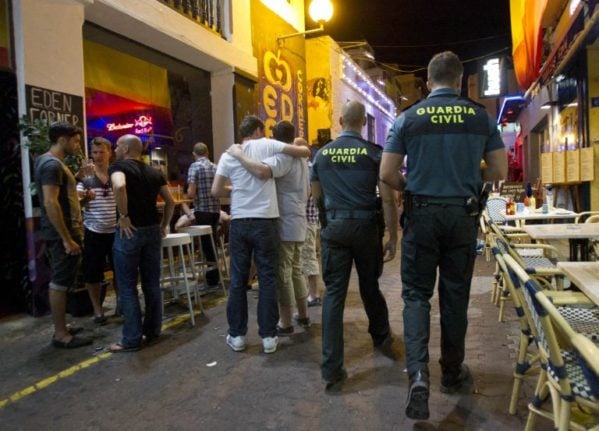Spain’s Interior Ministry has announced that tourists from third countries who have recovered from Covid-19 in the past six months can now visit Spain even if they haven’t been fully vaccinated against Covid or if their Covid vaccination certificate has expired because they haven’t had a booster shot.
The rule changes to non-essential travel were published in Spain’s state bulletin BOE on Saturday February 26th and are in force since that date.
The new clause states that “people with a vaccination certificate OR a recovery certificate recognised by Spain’s Health Ministry” are able to travel to Spain.
According to Spain’s Health Ministry, recovery certificates accepted as valid are those “issued at least 11 days after the first positive NAAT or RAT, and up to a maximum of 180 days after the date of sampling”.
NAATs – nucleic acid amplification tests – are usually PCR tests whereas RATs stand for rapid antigen tests. The Covid test must have been carried out by an accredited laboratory; self-test kits are not valid.
The recovery certificate needs to have been issued by the “relevant authorities” or a “medical service” of the country in which you tested positive for Covid-19 in the last six months.
The change applies only to non-EU/EEA nationals who do not live in Spain and are visiting for tourism or other non-essential reasons, for example British, American, Australian, Canadian or other third-country holidaymakers. Children under the age of 12 are exempt from Spain’s travel requirements.
Unvaccinated foreign residents in Spain, EU citizens and residents as well as Spanish nationals can continue to travel to Spain, but in most cases will need to show a negative Covid test, or a recovery certificate if applicable.
Unvaccinated non-EU/Schengen tourists who do not have a recovery certificate can still not enter Spain.
This latest change follows the decision in early February to allow unvaccinated non-EU/EEA minors aged 12 to 17 to visit Spain if they show a negative PCR test.
It came after weeks of pressure from Spain’s tourism industry who said British families in particular were being dissuaded from going on holiday to Spain because their unvaccinated teenage children couldn’t come with them.
Spanish authorities also recently followed the EU’s recommendations to Member States and updated the country’s travel rules regarding Covid-19 health passes and required vaccinations.
The main change for third-country travellers wanting to travel to Spain is that if they completed their initial Covid-19 vaccination more than 270 days ago (around 9 months), they will need to show they’ve had a Covid booster shot to be able to visit the country. People in this situation who have had Covid-19 in the last six months can now use a recovery certificate instead to enter Spain.
Spain also has a list of low-risk third countries whose travellers do not have to present proof of vaccination, testing or recovery. This is updated regularly and currently includes Bahrain, Chile, Colombia, Indonesia, Kuwait, New Zealand, Peru, Qatar, Rwanda, Saudi Arabia, South Korea, United Arab Emirates, Uruguay, China, Hong Kong, Macao and Taiwan.
All travellers to Spain must complete a health control form before travelling to Spain.
READ ALSO:



 Please whitelist us to continue reading.
Please whitelist us to continue reading.
Member comments